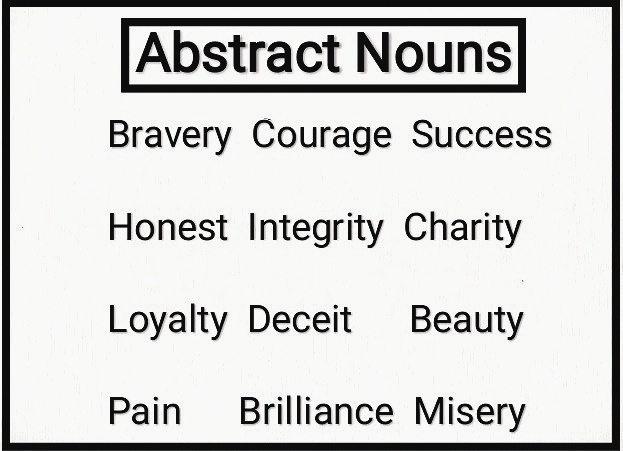What are Material Nouns? Rules and Examples
Material Noun: A noun is the name of a person, place, animal, feeling, thing, idea, etc. It can be of different types, one of which is object noun.Material nouns are nouns that refer to a physical thing that can be seen, touched, or felt. It can be a countable or uncountable. For example, acid, air, alcohol, rain, brick, paper, stone, etc. Acid, wind and rain are uncountable material nouns while brick, paper and stone are countable material nouns.
Let's start without wasting time.
What are Material Nouns?
A material noun is the name of a substance or substance that is used as a raw material for other things. For example, milk, gold, oil, water, wool, cotton, plastic, honey, cloth, paper etc. They are either used as is or used to make something else.This is the original product. This means you can see and touch them. It has a physical form and material nouns are always uncountable. This means they do not exist in units and are therefore not counted but rather, weighed or measured. This thus, follow the grammatical rules of uncountable nouns.
Material Noun Examples
In English grammar, the material noun refers to the object or substance from which the object is formed. Here are some examples of material nouns that will improve your understanding. Let's see some examples:- Our teacher sometimes forgets his keys in the classroom.
- The farmers produce cotton once a year.
- The doctor placed a silver tooth in his mouth.
- Plastics are non-degradable products.
- Electrical cables may be over copper and aluminum.
- Fiber is a better option than copper in some places.
- The ball breaks the glass window.
- White leafy vegetables are rich in calcium.
- He bought a dozen eggs from the mart.
- The wheat is grinded to obtain flour.
- Japanese of gold are stronger than chains of iron.
- In the deepest water is the best fishing.
- A fresh coat of paint can transform a home.
- The bird is eating a grain of rice.
- He bought a dozen eggs from the market.
- She is cutting an iron rod with a blade.
- Copper is a good conductor of electricity.
- Diamond is the hardest substance known.
- This perfume has a light, fresh fragrance.
- Put a rubber band around these books.
- A crushing machine turns large rocks into powder.
- The pipes should be made of plastic.
- The butter will soften out of the fridge.
- Coconut fiber can be made into mats.
- You’ll need three tons of cement, minimum.
- Coal miners have to work underground.
- White clouds passed over the sky.
Material Noun Rules
Here are the rules regarding the use of material nouns in sentences.Rule 1: The article, e.g., A, An, or The, is not used with material nouns when the noun is uncountable, e.g.
- I drink milk daily.
- Honey is nature's most respected remedy for skin.
- I bought a silver watch.
- This is really a nice book.
- The mug of coffee is mine. Do not give to others!
- I need some water.
Conclusion
Material nouns are a type of noun that refers to things that can be touched or felt. They are often physical objects, but they can be abstract concepts. Material nouns can be countable or uncountable. Some examples of material nouns include trees and water. This differs from abstract nouns, which refer to ideas that cannot be physically experienced. Abstract nouns are often intangible and can be either countable or uncountable. Some examples of abstract nouns include happiness and anger. When deciding whether a noun is real or abstract, it can be helpful to think about whether the thing can be experienced with the five senses.Short A Video Summary
For a better or good understanding, watch this video on chapters, What are Material Nouns? Rules and Examples? And How To Use It? Then it will help to understand the matter more are rules Material Nouns.Material Noun- FAQs
Q1. What is Material Noun?Ans. A material noun is a substance, substance, or thing that can be perceived by the senses. For example, "The apple was half between Ritu and me", in this sentence "apple" is a material object that can be perceived by seeing, feeling or touching.
Q2. Give some examples of material noun?
Ans. Some examples of material nouns are - my teacher sometimes forgets his keys in the classroom, the farmer produces cotton once a year, the doctor has a silver tooth in his mouth, plastics are non-degradable products, electrical wires are probably made of copper and aluminum.
Q3. What are the rules of Material Noun?
Ans. The rules for using material nouns in sentences are: Articles, such as A, An, or The, are not used with material nouns when the noun is uncountable, articles, such as a or an, can be used with material nouns when the noun is countable (object (in nature indicating or helping nature), the words 'the' and 'some' can be used in a few cases.
Q4. How to use material noun?
Ans. If the material noun is used at the beginning, it should be capitalized otherwise it may be lowercase.


